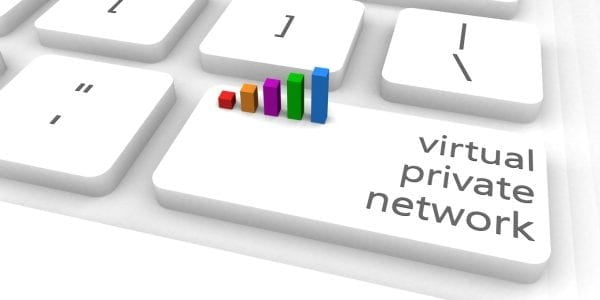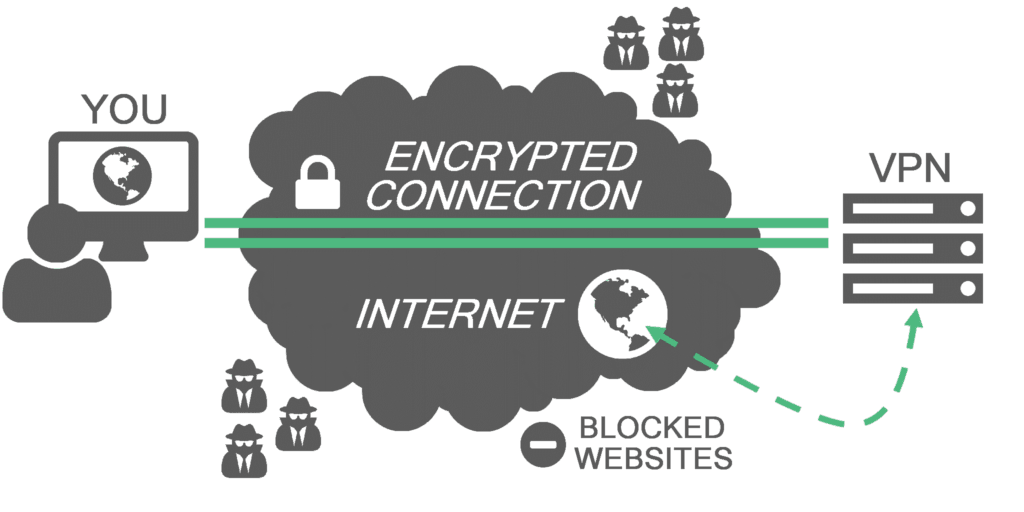
The Internet… What a marvelous invention, am I right? Tell me something. Could you imagine your life without it these days? I don’t think so. It has become too important for everyone, including both individuals and various organizations.
And yet, we sometimes fear it. Fearing something that you don’t completely understand is perfectly normal. We have all heard a few scary stories about hackers and such, and some of us might have even had our own experiences with this. Who knows what the World Wide Web is capable of today?
I don’t know about that, but I do know that you are capable of protecting yourself. If you click here, you will find the fastest and easiest ways to keep your device safe online. A virtual private network (VPN) is all you need.
Still, that all might seem a bit complicated to you. Especially if you do not know whatsoever about this topic well, I am here to make that right. And don’t worry, I won’t get all technical. My goal is to explain VPN to you in the simplest way possible.
What Is VPN And Why Is It Used?
Did you know that your online activities are probably tracked and monitored right now? Yes, right now, while you are reading about how to stay safe on the Internet. Isn’t this a paradox? Well, that’s on you, for not using a VPN.
So, if the hackers come knocking, who are we to blame? This might sound like an exaggeration. However, simply because this hasn’t happened to you yet, that doesn’t mean it won’t. And if you insist on using public Wi-Fi with no layer of protection, then you really only have yourself to blame.
Get yourself informed here: https://www.howtogeek.com/133680/htg-explains-what-is-a-vpn/
You have probably heard a lot about the VPN service, but you don’t exactly know how this works. That’s about to end. In essence, a virtual private network is a service that allows you to ensure your online privacy by connecting to the Internet through an encrypted tunnel.
Think of it as of your own, private passageway to the World Wide Web. By using it, you make your browsing completely private. That means that the only party who can see what you are doing, other than yourself of course, is the exact website you visit.
Furthermore, with this service, your sensitive data are protected. So, if you want to avoid prying eyes while working in a public place, or you simply don’t enjoy the idea of having your privacy invaded, then a VPN can help you. It is there to keep your device secure. Read this.

Types of VPNs
VPNs come in various forms to cater to different needs. Personal VPNs are designed for individual use, providing security and privacy for personal browsing. Business VPNs, on the other hand, help secure corporate communications and remote work. Remote Access VPNs allow individual users to connect to a private network from a remote location, while Site-to-Site VPNs connect entire networks to each other, typically used by companies with multiple offices.
How VPNs Work
At the heart of a VPN’s functionality is encryption and tunneling. When you connect to a VPN, your data is encrypted, making it unreadable to anyone who might intercept it. The data travels through a secure tunnel to the VPN server, which then connects to the internet on your behalf. Different VPN protocols offer various levels of security and speed. OpenVPN is known for its robust security, while PPTP offers faster speeds but is less secure.
Benefits of Using a VPN
Using a VPN provides multiple benefits. It secures your data on public Wi-Fi networks, protecting you from potential hackers. A VPN also masks your IP address, enhancing your online privacy and helping you stay anonymous. Additionally, VPNs enable access to geo-restricted content, allowing you to stream services like Netflix or BBC iPlayer from anywhere in the world. They also help bypass censorship in countries with restrictive internet policies.
Choosing the Right VPN
When selecting a VPN, consider factors such as connection speed, security features, privacy policies, and cost. Top VPN providers like NordVPN, ExpressVPN, and CyberGhost offer strong security, fast speeds, and strict no-logs policies, ensuring your data is protected and your online activities remain private. Comparing these providers can help you find the best VPN for your needs.
Setting Up a VPN
Setting up a VPN is straightforward. Most VPN providers offer easy-to-follow guides for various devices. For Windows, download the VPN client from the provider’s website, install it, and follow the setup instructions. On mobile devices, you can usually find the VPN app on the App Store or Google Play Store. Once installed, log in with your credentials, and connect to the desired server location.
Common Misconceptions about VPNs
There are several misconceptions about VPNs. One common myth is that VPNs provide complete anonymity. While they significantly enhance privacy, they do not make you completely anonymous. Another misconception is that free VPNs are as good as paid ones. Free VPNs often come with limitations such as slower speeds, fewer server options, and weaker security. Paid VPNs typically offer more reliable and secure services.



Leave a Reply